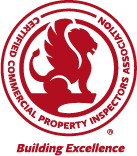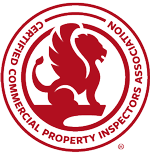No one person has all the technical knowledge to perform every commercial inspection single-handedly. Many commercial inspection projects simply demand that a number of experts and specialists be contracted to help complete the inspection project.
The International Standards of Practice for Inspecting Commercial Properties defines “consultant” as:
“a person with particular expertise in a subject who assists the inspector with portions of the inspection.”
“Any portion of the inspection, including the walk-through survey, research, and report generation, may be performed by the inspector, his/her staff, or any consultant hired by the inspector. This standard recognizes that, for the majority of commercial inspections, the inspector is likely an individual with a general, well-rounded knowledge of commercial properties, and that the inspector or client may want to augment the inspector’s skills with specialty consultants who have particular expertise in certain areas. The decision to hire specialty consultants will, of course, rely on budget and time constraints, as well as the risk-tolerance of the client.”
Some commercial property inspectors are qualified to perform some of the inspection themselves. Others become comfortable taking on certain portions of the inspection after acquiring specialized training or after some time working with their consultants.
However, the most successful commercial property inspectors don’t inspect much at all. Instead, like a general contractor who is building a house, the successful commercial property inspector acts as project manager… an inspection project manager. Duties of the commercial inspector include scheduling consultants, arranging for property access, reviewing documents, communicating with the client, assembling reports, authoring summaries, presenting findings, and bidding new inspection projects. Managing more than one project at a time can only be done with the help of a team of consultants. And because consultants are independent contractors with their own businesses and schedules, the commercial inspector should also have a second string of backup consultants in place. A chart that lists the types of consultants down the left side and information about each consultant across the top might be constructed. It could be in an EXCEL computer file or on a dry-erase board and should be regularly updated by the commercial property inspector.
The different types of consultants might include:
- commercial roofer;
- stucco/EIFS consultant;
- professional engineer;
- environmental specialist;
- commercial HVAC contractor;
- plumber;
- electrician;
- roofing contractor/consultant;
- chimney sweep;
- Infrared Certified™ energy auditor;
- lead paint inspector;
- life-safety/fire protection expert;
- elevator/escalator inspector;
- commercial kitchen expert;
- radon inspector;
- mold inspector;
- indoor air quality expert;
- meth lab inspector;
- wood-destroying organisms inspector;
- accessibility consultant;
- green features inspector;
- fire door inspector;
- pool/spa inspector;
- parking lot/asphalt consultant;
- water quality inspector;
- seawall inspector; and
- septic inspector.
Take CCPIA’s free, online Commercial Inspection Standards of Practice to learn more about creating a team of specialty consultants for your commercial inspection business.
Additional Resources for Commercial Inspectors
- Some Thoughts on Electrical Inspections at a Commercial Property
- Video: Commercial Inspection Procedure and ComSOP
- Video: Issue Identification and Field Collection

